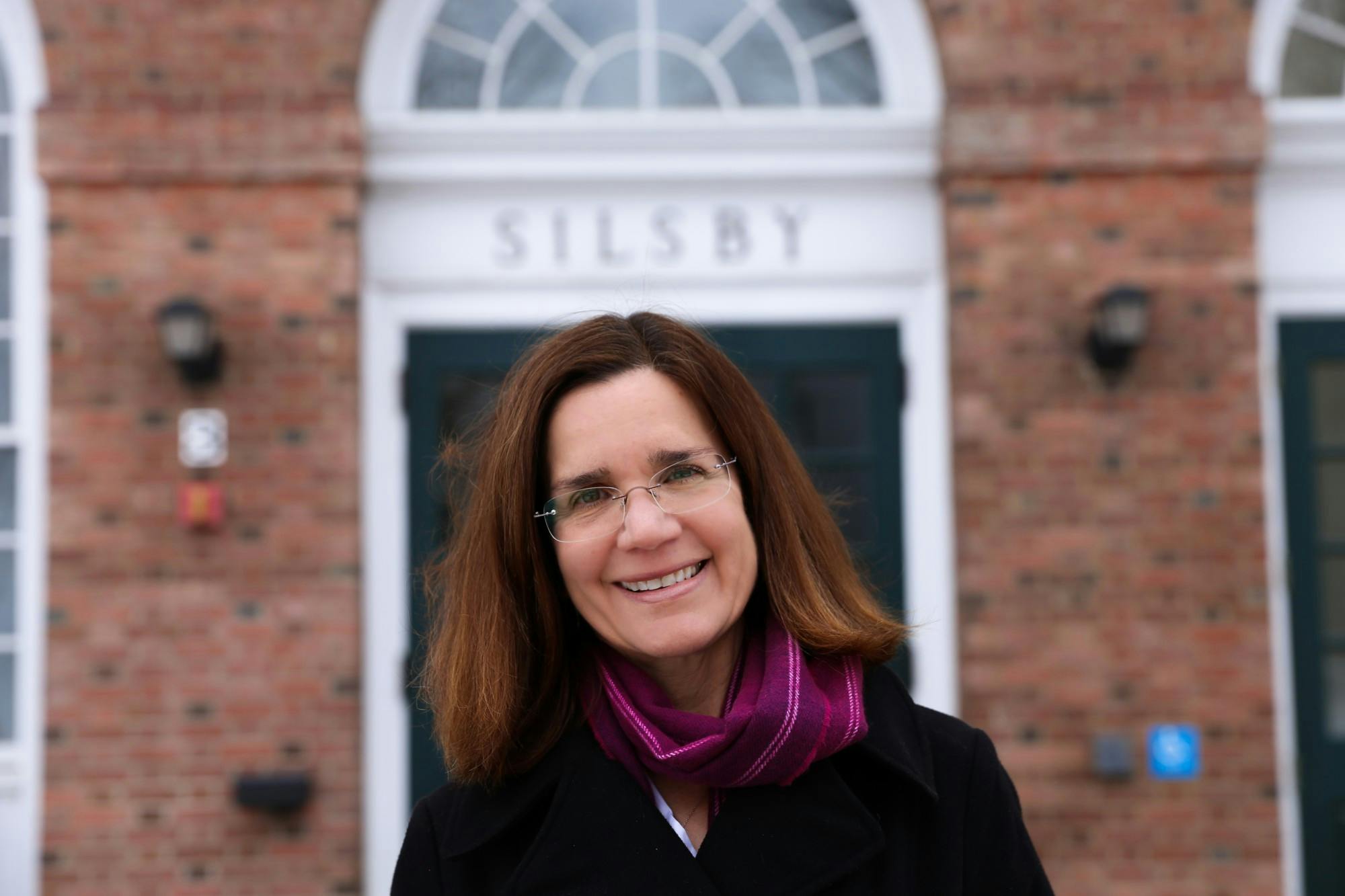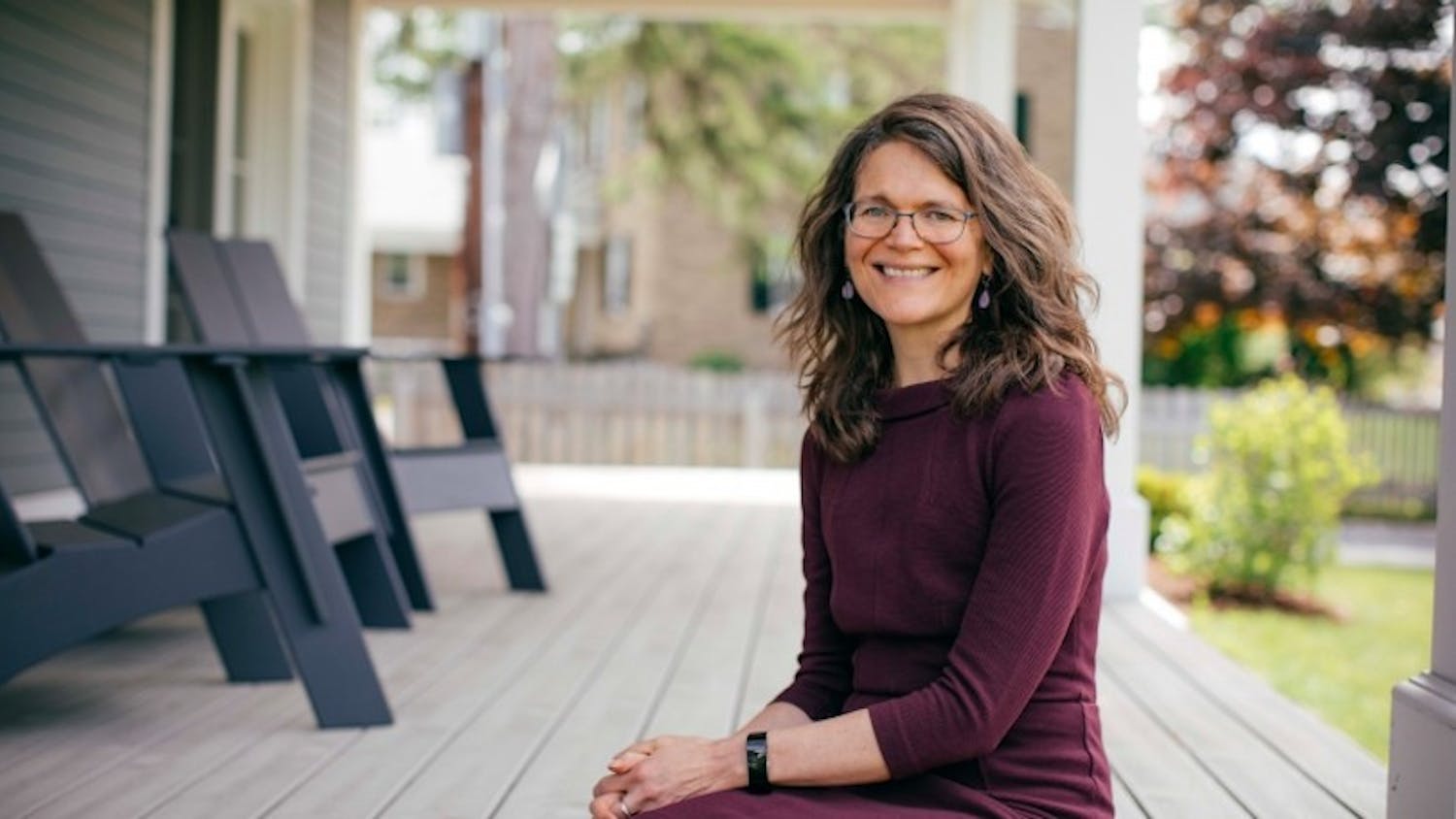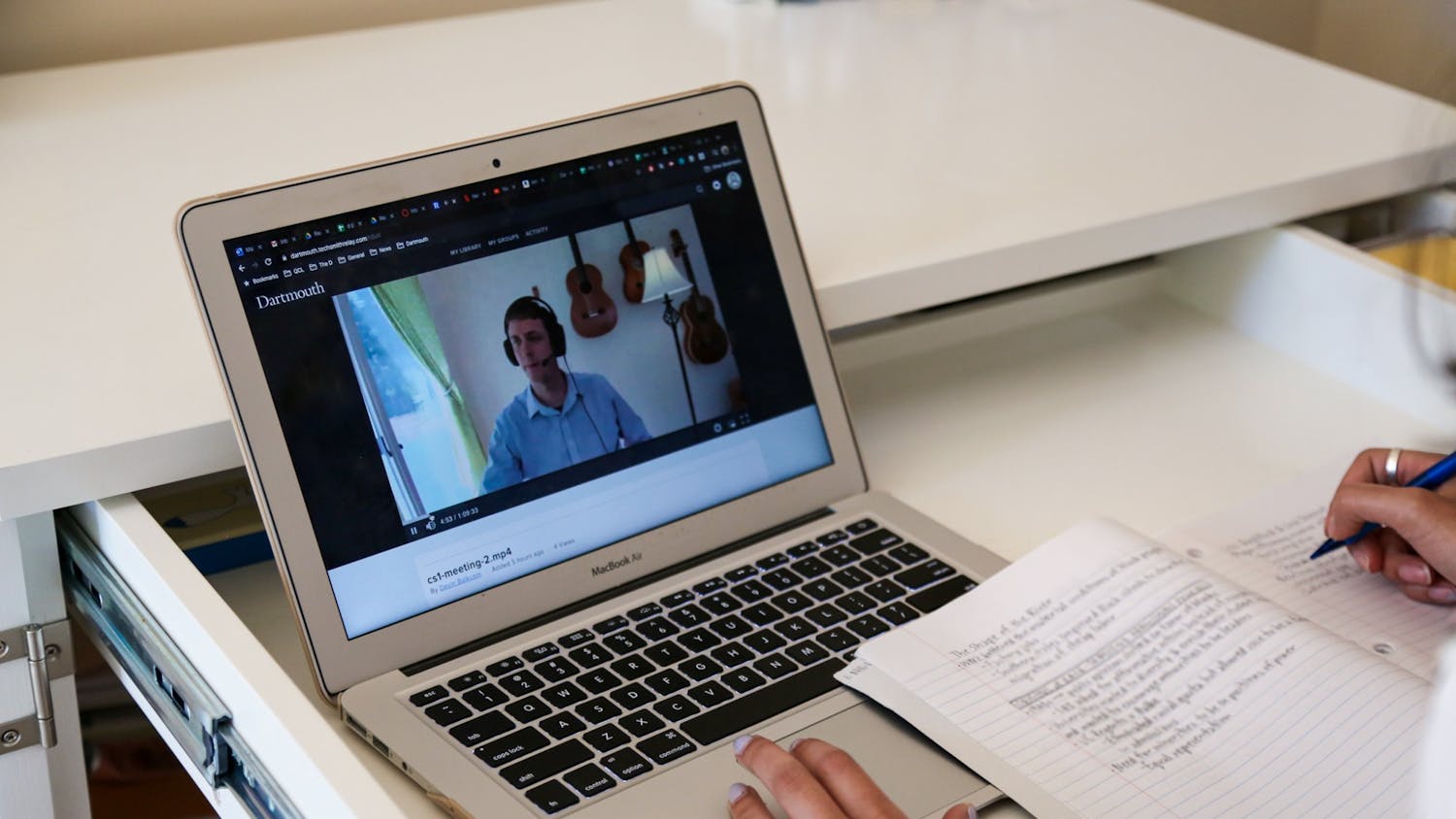This article is featured in the 2020 Freshman special issue.
As most professors plan fully remote classes for the upcoming fall term, economics professor Marjorie Rose is preparing to teach in person. In fact, her class, ECON 22, “Macroeconomics,” is the only economics class that will have in-person instruction this fall. Rose spoke with The Dartmouth about her thoughts on teaching on campus, as well as how she has spent her time during the pandemic.
You’ve mentioned that you are planning on teaching in person this term. What influenced your decision?
MR: I love interacting with the students. I think most or all of the Dartmouth faculty come to a place like Dartmouth because they’re excited about teaching undergraduates. And teaching in person, getting the energy of the classroom and sharing the energy between the faculty and the students make teaching so much more effective in many ways. My other motivation was that I wanted to make sure that the students who were on campus actually had an opportunity to experience a somewhat normal classroom. Obviously, it’s going to be distanced and with masks and safety precautions, but at least to have that experience — I thought it was especially important for the freshmen because they don’t have any counterfactual. They haven’t been at Dartmouth yet.
Is there something about the subject of macroeconomics in particular that makes it more beneficial to be taught in person?
MR: I don’t know, because I haven’t done online yet. I use a number of teaching techniques that benefit from being in person. And we’ll see if I may have to shift — learn to do some of those things online. I’m not sure all of them translate. I mean, you can do cold calls, and I do buzz groups where we break out in small groups spontaneously in class to do a little problem. We have something called a productivity moment, where a student leads a little break in the middle of the class. I’m sure I can do all of those things online, but it’s going to be very different. I think we’re social animals, and everyone benefits from an in-person learning experience. But I think that can be effectively mimicked if you are intentional and careful about the way you design an online class.
Do you have any advice for students who will be taking online classes this term, specifically for the freshmen?
MR: I would say — and I say this to my students every year in person — the Dartmouth faculty likes interacting with students. We like getting to know our students. So I would suggest, especially to the freshmen, don’t hesitate to visit office hours, even if they’re virtual office hours. And I would say we’re here for you. Don’t hesitate to get to know the faculty. Make the effort — if it’s an appointment, or if it’s an open Zoom classroom, make the effort to join those office hours because that’s going to help you get to know the faculty. It’s also gonna help you get to know the other students in the class.
How has the current pandemic affected the importance of studying economics, in your opinion?
MR: That is the sixty-four thousand dollar question. I think this is an incredibly interesting time to be studying macroeconomics in particular. We’re right now in one of the biggest, if not the biggest recession, world downturn. And being able to study that in real time — I use a lot of real-world examples, I assign a lot of current articles. Every time I teach macro, I’m every night looking at The New York Times, The Financial Times, The Economist and The Wall Street Journal for articles that are applications of the models and the frameworks that we’re studying in macro. And there are so many right now. Being able to understand what’s happening to unemployment, to the stock market, to GDP, to inflation, all the key indicators for macro. It’s an incredibly exciting time to be studying macro.
Do you have any anxieties about teaching in person?
MR: Well, obviously there’s risk. Anytime you have in-person interactions, there are health risks. And I think the other concern from a teaching standpoint is to figure out how I can foster that sense of community in a really large classroom where everyone is in masks. If we’re doing stuff online — and we will be during the first two weeks — my concern is to make sure that I’m taking enough steps in the design of the course to foster that sense of community because peer-to-peer learning is an important part of the learning process. It’s not just lectures, it’s applying this stuff and interacting with your classmates. So making sure that we set up enough opportunities to do that either in an on-campus, distanced in-person class or in an online class.
What got you interested in studying economics, and what was your path to becoming a professor?
MR: So, ironically, I was an anthropology major when I first started college, and I took my first macro class — my first econ class was introductory macroeconomics. And it blew my mind. Actually, it was that class where I decided I wanted to switch my major and more importantly, I wanted to become a macroeconomist. It was actually the spring of my freshman year. And basically, I never looked back.
I went on to graduate school. I didn’t want to be an academic — I wanted to do macroeconomic policy. So after graduate school, I actually worked in Washington, D.C. I worked first for the Council of Economic Advisers. And then my main job after completing my Ph.D. was working as a macroeconomist for the International Monetary Fund. And I basically did macroeconomic policy around the world for the IMF. My husband, Doug Irwin, who is also on the economics faculty, and I decided to come to Dartmouth when the travel just became very challenging. We were juggling travel with raising a family, and he was commuting to Chicago — it was kind of a crazy life. So when Dartmouth called and said, “We would love to have both of you on the economics faculty,” it just came at a terrific time. And I came thinking, “Well, I really like doing macroeconomic policy. It’s a job — it’s not a career.” And it totally morphed into this wonderful second career teaching undergraduates. I absolutely love teaching at Dartmouth.
You mentioned that your husband, Doug Irwin, is also a Dartmouth economics professor. What’s it like to both work in academia?
MR: We love it — we both think the same way, we’re both trying to figure out how to make the online content more effective, so we have lots of interchanges. And we’re economists, so over the breakfast table we’re discussing an article from The Wall Street Journal or what’s happening with economic policy in Washington. We both have that interest. I can’t imagine life without my husband being an economist. And I have to say, the economics department has a lot of dual couples like that.
How did you yourself find the transition to quarantine life to go, and how are you spending your time these days?
MR: I’m obviously spending a lot more time on the computer. I usually take summer as a period to take a pause. And I don’t do research. I sometimes will do consulting, but I can’t do consulting this summer. So I’ve done some art projects and gardening projects. The other creative project that I’m loving that I think I’m going to transfer to my Dartmouth classes — I’ve done a lot of video editing for my church, but also for the Political Economy Project. It’s creative and it’s fun and it’s a way of conveying ideas in a more interesting way, I think, than a straight lecture or conversation, so I’m hoping I can use some of that for my Dartmouth classes.
Do you have any advice for the ’24s?
MR: Take some risks and try out some new classes, some new areas, that you’ve never considered before. That’s the beauty of a liberal arts education — it gives you the opportunity to try out a lot of different subjects that you ordinarily wouldn’t be able to do. I would say, too, really reach out to your classmates. Dartmouth is very collaborative, and students learn a lot more from each other, so don’t hesitate to join a study group, form your own study groups, take the initiative and get to know the students in your classes. Especially for the assignments where I encourage students to work together, because I think they learn better that way, struggling through the material themselves. I think there are a lot of things that students can do to help them learn the material, but also to improve their understanding and also just to make it a much more engaged, exciting learning environment.
This interview has been edited and condensed for clarity and length.




